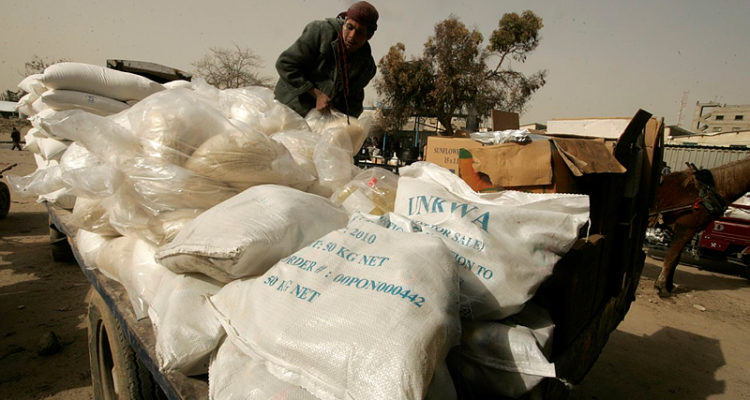A report from the World Bank calls for urgent action from Israel and the global community to avoid the “immediate collapse” of the economy of the Hamas-ruled Gaza Strip.
By: AP and World Israel News
The Gaza Strip’s economy is in “free fall,” a report from the World Bank warned Tuesday, calling for urgent action by Israel and the international community to avoid “immediate collapse.”
According to the report, Gaza’s economy contracted by six percent in the first quarter of 2018. It said unemployment is now over 50 percent — and over 70 percent among Gaza’s youth.
The World Bank cited various factors, starting with Israel’s decade-long blockade against the territory’s terrorist Hamas rulers, for the precarious downturn. Egypt also enforced a blockade in response to the Islamic terror threat.
The report also cited budget cuts by the rival Palestinian Authority and a reduction in international aid to the Palestinians, particularly from the United States.
“A combination of war, isolation, and internal rivalries has left Gaza in a crippling economic state and exacerbated the human distress,” said Marina Wes, the World Bank’s director for the region.
The report was released ahead of a high level meeting of the bank’s Ad Hoc Liaison Committee, responsible for coordinating development assistance to the Palestinians, on Sept. 27.
Wes said the increasingly dire economic situation in Gaza “has reached a critical point.”
“Increased frustration is feeding into the increased tensions which have already started spilling over into unrest and set back the human development of the region’s large youth population,” she added.
Gazans have staged near weekly demonstrations along the border with Israel since late March, ostensibly to protest the blockade enforced by Israel and Egypt since 2007, when Hamas seized the territory.
Israeli soldiers have killed at least 136 Palestinians during the weekly protests since March, including 27 minors, according to Gaza’s Health Ministry. Israel says it’s defending its border and accuses Hamas of using the protests as a screen for attempts to breach the security fence to attack and kidnap civilians and soldiers.
In an interview in May, for example, a Hamas official acknowledged that 50 of some 62 Palestinians killed in recent clashes with Israeli security forces along the Gaza border were members of the terror group.
Hamas terror chief Yahya Sinwar recently admitted that the violent border clashes were staged to divert pressure from Gaza’s economic problems to Israel.
Addressing a Hamas conference in Gaza, Sinwar said, “After the reconciliation efforts (between Hamas and Fatah) reached an impasse, a number of factions planned to cause an internal explosion in the Gaza Strip, but the Marches of Return thwarted the plan.”
Since the start of the weekly protests on March 30, which included rock-throwing, tire-burning, hundreds of rocket attacks against Israel, arson terrorists in Gaza have destroyed many acres of Israeli farmland and nature reserves with indeniary kites and balloons launched at the border.
Gaza’s economic situation is likely to deteriorate further because of failed attempts to negotiate an easing of the blockade. Hamas leaders said this week that Egypt-mediated efforts to broker a long-term ceasefire with Israel have stalled.
Repeated attempts to broker a reconciliation deal between rival Palestinian factions — Hamas and President Mahmoud Abbas’s Fatah party — have also failed.
Israel has also closed the Kerem Shalom border crossing in response to the continued arson attacks.
In the report, the World Bank calls upon Israel to lift restrictions on trade and movement of goods and people to help improve Gaza’s economy, and urges development of “legitimate institutions to govern Gaza in a transparent and efficient manner.”
“I would like to send a message to the people of Gaza,” Israeli Defense Minister Avigdor Liberman said recently. “You have become hostages of the Hamas regime. “You can build a much better future for your children. You can get all the humanitarian, economic, and civilian aid, but first you have to kick out Hamas.”
“The residents of Gaza must understand that as long as there are incendiary balloons on our side and fires, their life will not return to normal,” he stated.




